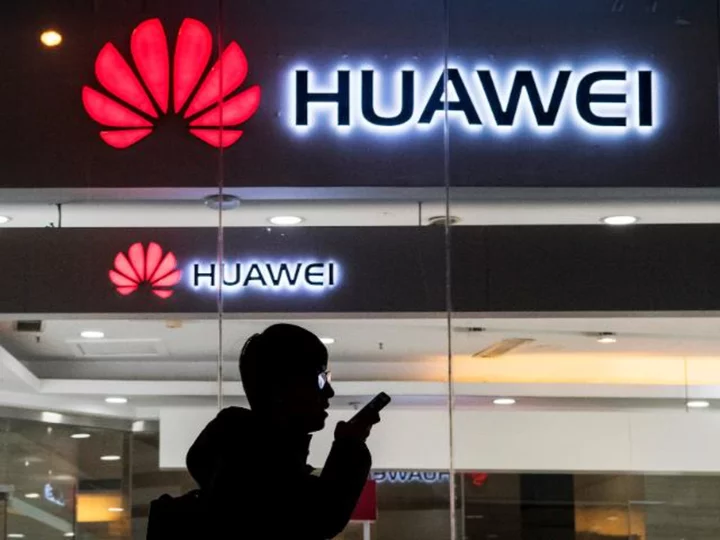Commerce Secretary Gina Raimondo says the US government has no evidence that Huawei can produce smartphones with advanced chips "at scale," as it continues to investigate how the sanctioned Chinese manufacturer made an apparent breakthrough with its latest flagship device.
On Tuesday, Raimondo told US lawmakers that she was "upset" by news of the launch of Huawei's Mate 60 Pro during her visit to China last month.
"The only good news, if there is any, is we don't have any evidence that they can manufacture 7-nanometer [chips] at scale," she told a US House of Representatives hearing.
"Although I can't talk about any investigations specifically, I promise you this: every time we find credible evidence that any company has gone around our export controls, we do investigate."
Analysts who have examined the smartphone said it represented a "milestone" achievement for China, suggesting Huawei may have found a way to overcome American export controls.
US officials have long argued that the company poses a risk to US national security, using it as grounds to restrict trade with the company. Huawei has vehemently denied the claims.
A new flashpoint
TechInsights, a research organization that specializes in semiconductors and took the phone apart for analysis, says it includes a 5G Kirin 9000s processor developed by China's leading chipmaker, Semiconductor Manufacturing International Corporation (SMIC).
That surprised many because SMIC, a partially state-owned Chinese company, has also been subject to US export restrictions for years. It has not responded to previous requests for comment from CNN.
TechInsights also found two chips belonging to SK Hynix, a South Korean chipmaker, inside the handset.
A SK Hynix spokesperson told CNN earlier this month that it was aware of the issue and investigating how that was possible, since the South Korean firm "no longer does business with Huawei" because of US export controls.
Huawei declined to comment on the capabilities and components of its phone.
Raimondo said Tuesday that US officials were "trying to use every single tool at our disposal ... to deny the Chinese an ability to get intellectual property to advance their technology in ways that can hurt us."
Switching to offense
In 2019, Huawei was added to the US "entity list," which restricts exports to select organizations without a US government license. The following year, the US government expanded on those curbs by seeking to cut Huawei off from chip suppliers that use US technology.
That left the company, once the world's second largest smartphone seller, in bad shape.
As of the second quarter of 2023, Huawei was no longer in the top five of mobile phone vendors in China, let alone globally, according to Counterpoint Research.
But its new phone is a big help for the company — and may pose a challenge to Apple's (AAPL) market share in China, according to Ivan Lam, a senior analyst at Counterpoint.
Huawei is scheduled to hold a product launch event next Monday, where new phones are expected to be the main focus, according to Toby Zhu, a Canalys mobility analyst.
Other devices, like tablets or earphones, may also be shown off. Huawei has not publicly released details of the event.
In the coming months, the firm plans to release another 5G phone, possibly under Nova, its mid-range lineup, Chinese news outlet IT Times reported Tuesday, citing unidentified industry sources. Huawei declined to comment.
Zhu said the phone was widely expected to come with 5G capability, powered either by the "Kirin 9000s chip or another chip."
If it does, the new model could become even more popular than the Mate 60 Pro, which starts at 6,999 yuan (about $959), because of its relative affordability, he added.
While Raimondo was unhappy with the timing of Huawei's launch, analysts say it was unlikely to have been arranged to coincide with her presence in China.
It was likely "a marketing campaign aimed at winning over customer interest before the iPhone 15 hits the market," analysts at Eurasia Group wrote in a report.
The move helped the Shenzhen-based company capture the second spot in China's smartphone market in the first week of September, ahead of Apple's big event, said Lam of Counterpoint.
— Rashard Rose and Mengchen Zhang contributed to this report.

